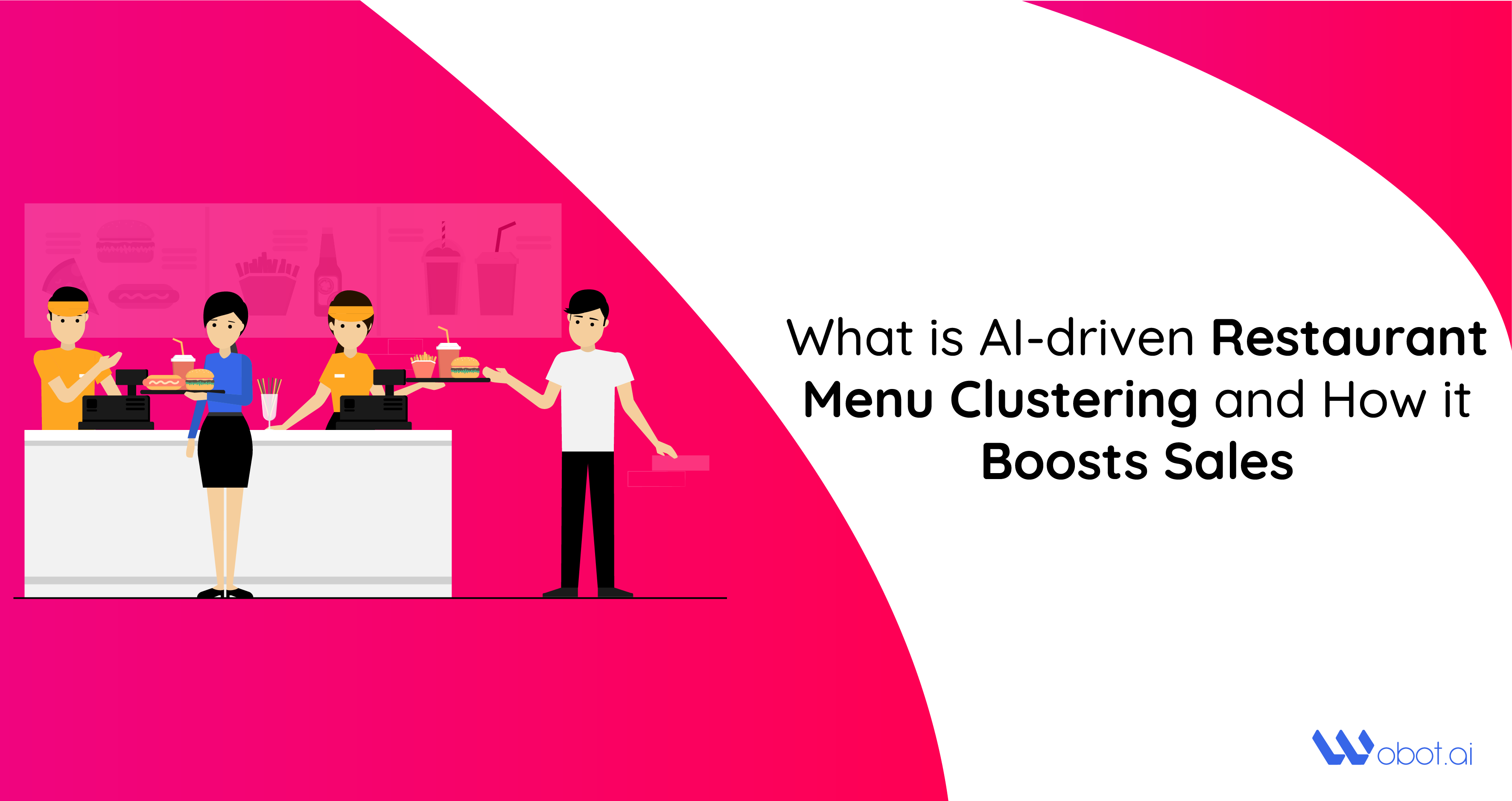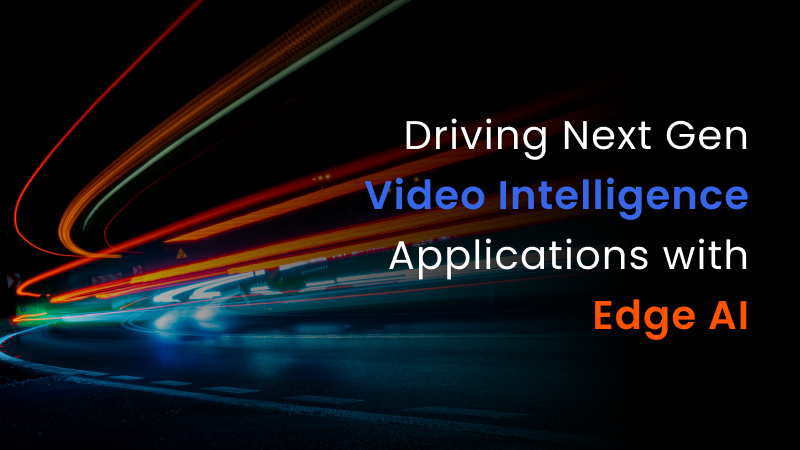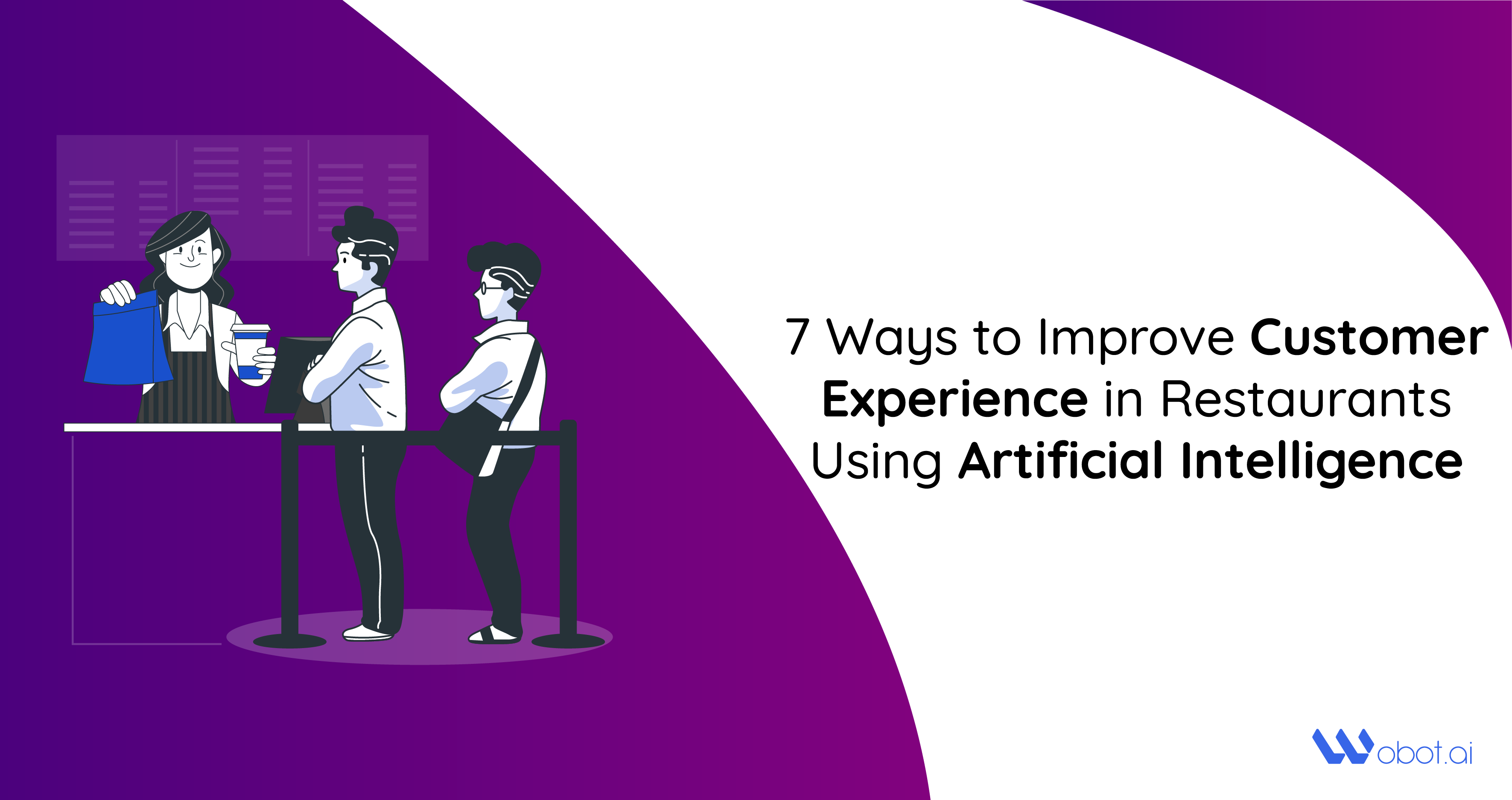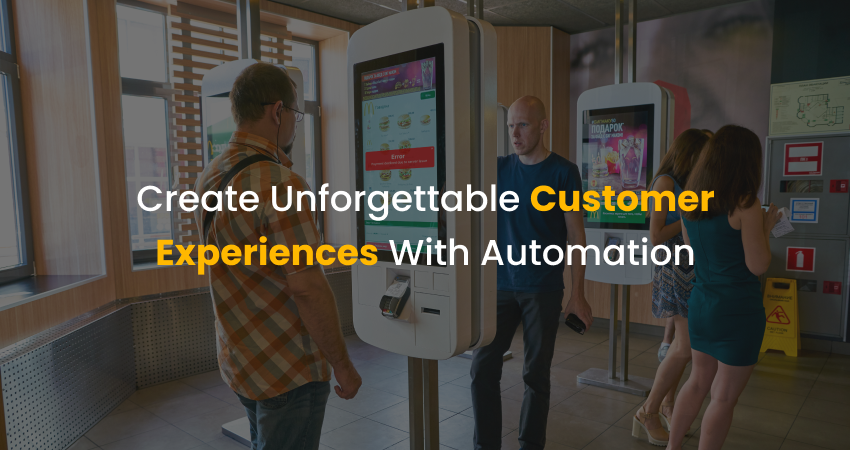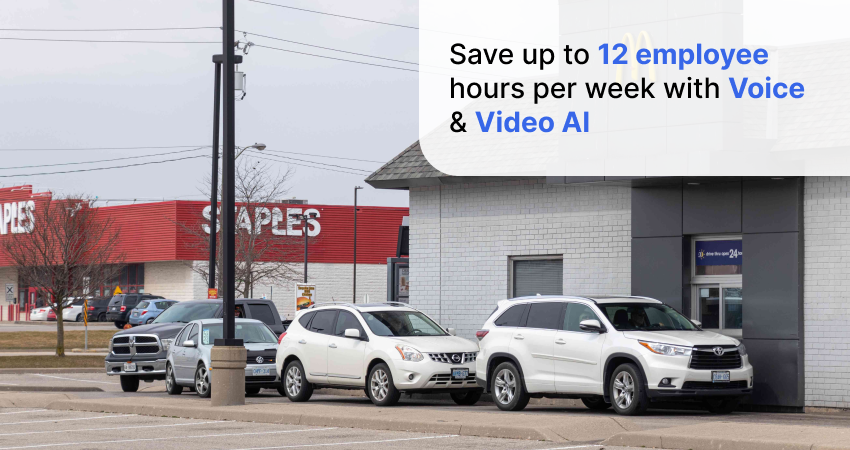The Ultimate Guide to DriveThru Camera Placement
Written by Team Wobot
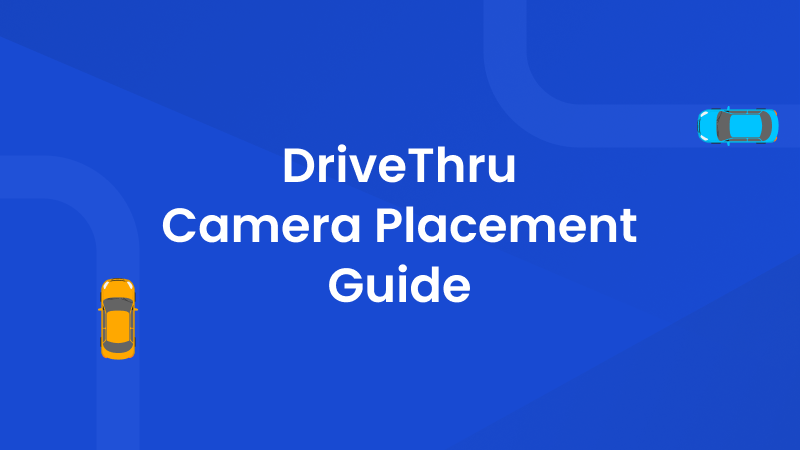
Table of Contents
Introduction
An impactful meal-in-a-minute service infers the right analytical equipment and efficient employees. However, the efficiency of employees can get hampered at times, due to incorrect inputs from surveillance devices. But why does it happen?
Well, the most common answer is - wrong camera placement or a malfunctioning camera.
We are sure that you do not want any of the above to affect your DriveThru. Video intelligence is a widely accepted part of almost every business now, but it holds a special significance in action-oriented activity.
It motivated us to come up with a full-fledged guide to solve all your queries about a DriveThru camera placement and how Wobot.ai amicably helps you do it.
Why is Correct Camera Placement important?
The right camera placement imparts -
Precision in monitoring the arriving cars
Accuracy in linking order number to the right vehicle
Much-needed time to prepare food to avoid last-minute errors
Keep a balanced momentum in the kitchen.
A smart watcher during a DriveThru is like a best friend always beside you!
Wait-Time is the top priority for consumers in a DriveThru. Thus, it is a matter of no suspense that people do not like to wait. It does not end midway as the importance of camera placement directly implies the question "How to do it?"
How to Execute DriveThru Camera Placement Rightly?
An optimal setup of cameras can help upgrade the quality of detections, and thereby improve the results significantly.
Here are a few tips to ensure the best camera placement at your DriveThru:
Vehicles captured by cameras should not be in top-view mode
The vehicles in the frame should not take up more than 30% of the frame
Headlights, wheels, bumpers, and other features should be clearly visible to aid in detection
Adjust the camera's orientation so that it is parallel to the ground plane
The path that the vehicle will take to reach the next station should be clearly visible
Wobot.ai Camera Features
You must be wondering "what type of cameras would meet all the given requirements for my DriveThru? and where to get them from?"
The good news is no way far! You have already arrived at the right place where brilliance and relevance are merged to match your requirements.
At Wobot.ai we create clarity with perfection so that our video intelligence products adorn your DriveThru with the finest monitoring.
A few fundamental components are required for producing the best outputs. These include:
- The camera itself, such as the resolution, IR capabilities, etc.
- Camera setup, such as the angle of placement, zoom/pan, etc.
Mentioned below are a few best practices that can significantly enhance the quality of the output
Camera distance for better accuracy
Minimize distance making it easier for the camera to focus without having to zoom
Minimum Camera Resolution
2MP Along with a Minimum Resolution of 1280x720 Pixels
Sufficient Infrared for Night-time Viewing
Ensure cameras are equipped with IR capabilities for good night-time viewing
Camera Configuration Settings
Adjust camera lighting and configure parameters like exposure, backlight, and image enhancement for the best results
Camera Mounting
Install cameras securely and ensure they are not loose
Zoom Level
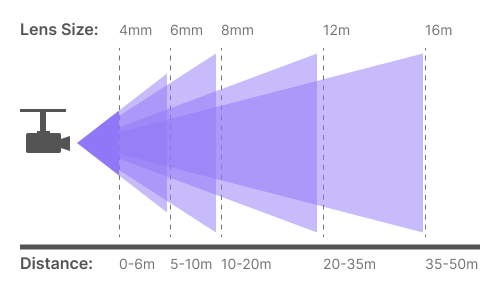
Ensure optimal zoom to avoid image blurriness
Camera Angle to Improve Detections

The camera setup can be positioned in two ways in terms of angle - OR Position the camera at a maximum angle of 45° for proper detection in both cases.
Camera Lighting
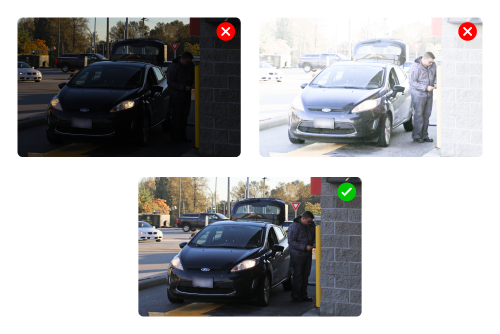
Avoid getting an overexposed or underexposed image. Adjust the shutter speed of your camera for best results.
Shutter Speed Settings (wherever available)
When it is bright - Set the shutter speed to 1/5000 of a second
At night - Set the shutter speed to 0.75 to 1 second
For License Plate Recognition (LPR)

To avoid capturing unnecessary content in the image, the camera should be in a higher position to capture only the front part of the vehicle. The camera side angle deviation should also be within 15 degrees.
Use the camera’s zoom feature, to zoom in or out. If that is not sufficient, see if the camera itself can be repositioned closer to or further from the capture area.
Try to avoid placing the camera where it can be subjected to direct sunlight or reflections.
Visible shadow edges in the camera view may degrade the recognition accuracy. Installing the camera with a vehicle frontal view is always recommended.
The captured image should be filled with the full width of the vehicle.
Vehicle Occlusion
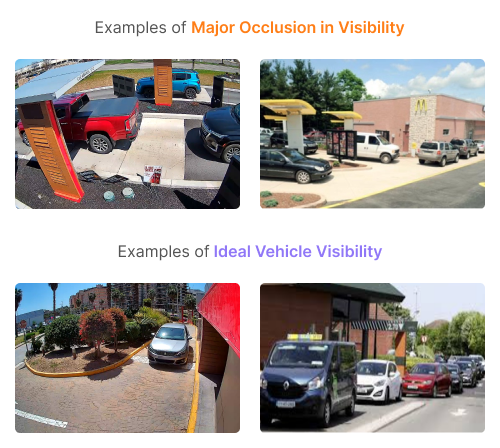
Vehicle occlusion occurs when the vehicle's detection is obstructed by external factors. Vehicles should not be occluded by more than 70% during their wait period at the stations.
Conclusion
DriveThru is an action-calling and highly promising set-up. Mistakes have a little scope there and everything is so lively that it caters to numerous consumers.
We are sure that you would surely benefit from this guide showing how the Wobot.ai camera amazingly fits your requirements.
Satisfied customers = Successful DriveThru
So, what's holding you back? Try out a demo with us to get better assistance and acquire the right camera placement for your business.
Learn to identify, analyze and mitigate process deviations in real-time with video intelligence.
P.S. You’re signing up for value here. No spam. No overly promotional emails.
Table of Contents
Related Blogs
See All


